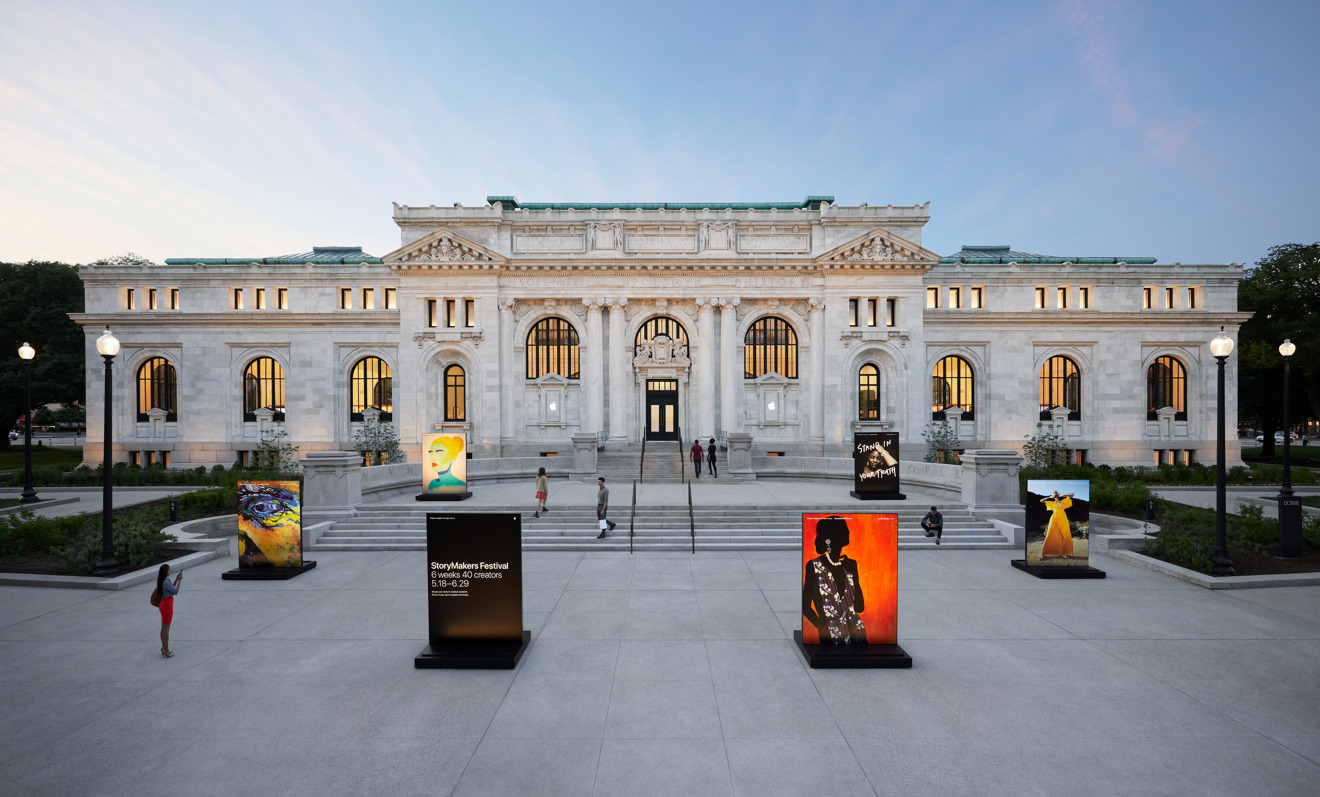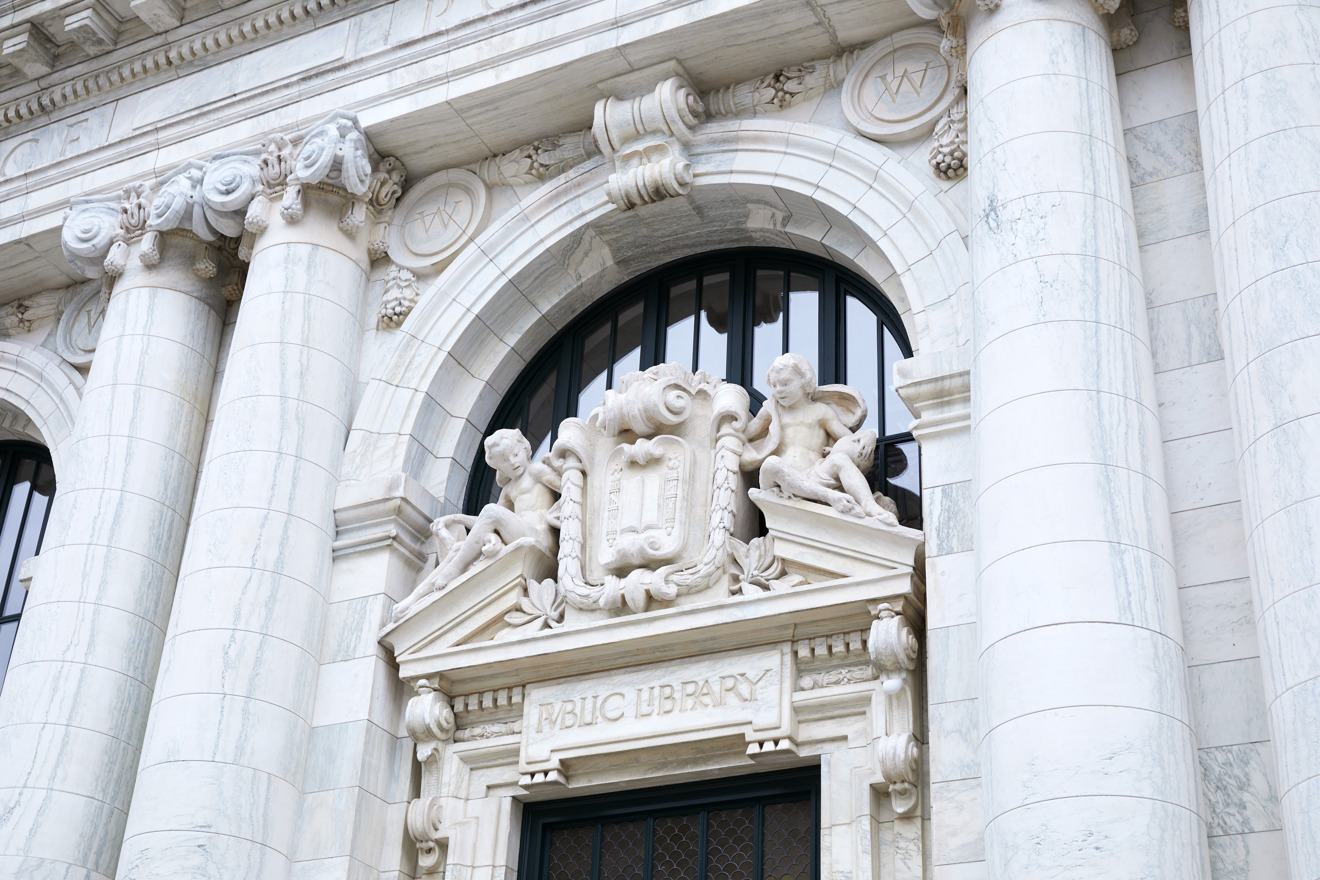Apple on Thursday previewed its Carnegie Library store in Washington, D.C., set to open on Saturday at 10 a.m., saying it will help the Library once again serve a public good despite much of it being turned into a private store.
The store represents Apple's "most extensive historic restoration project to date," the company said. The building was originally Washington's Central Public Library, funded and opened by Andrew Carnegie in 1903. Apple worked with conservation experts on preserving facades and details, and restoring interior spaces to their original dimensions. Apple's usual architectural firm, Foster + Partners, operated in conjunction with chief design officer Jony Ive.
"I love the synergy between old and new, the juxtaposition of the historic fabric and contemporary design," Ive said in a prepared statement.
The exterior has a revamped K Street plaza, as well as a new staircase on Mount Vernon Place. Lighting comes partly from a restored skylight.
The building hasn't been completely handed over to Apple. The iPhone maker will share space with the D.C. History Center, which includes the Kiplinger Research Library, three galleries, and a museum store. A new grand staircase connects to the Center on the second floor.
As previously announced the outlet will be holding a "StoryMakers Festival" between May 18 and June 29, consisting of Today at Apple sessions from 40 artists.
Development has been ongoing since 2016 and somewhat controversial for multiple reasons. Apple had to pay the building's owner, Events D.C., somewhere between $1 million and $2 million to cover losses versus prior usage. The company's arrival also meant the relocation of the Library's book collection, and despite Apple positioning its retail chain as "town squares," its events are ultimately focused on selling products.
 Roger Fingas
Roger Fingas











 Charles Martin
Charles Martin
 Christine McKee
Christine McKee
 Wesley Hilliard
Wesley Hilliard
 Malcolm Owen
Malcolm Owen
 Andrew Orr
Andrew Orr
 William Gallagher
William Gallagher
 Sponsored Content
Sponsored Content








16 Comments
OK, merits - as this will undoubtedly put Tim & Joni between Michelangelo, Frank Lloyd Wright, Aga Khan and Le Corbusier. Subsequently, can we customers (who funded this all) now go on with our lives - and get to hear when MacPro, improved MacBook keyboards, smallbezel iPads, iOS DarkMode, smaller volumeHUD’s and 100’s of other things will be programmed ? It may be surprising to the Apple Board, but those are the things due that we funded in the first place and that’s where their primary responsibility is.
“...robber baron Andrew Carnegie...”
Why make such a comment in a story about Apple? “Robber baron” is the view of a progressive hack. Carnegie was a businessman.